You don’t have to be an expert to tell that not all water is made alike. Depending on where you live, your water may taste and feel differently. And it all comes down to one thing: chemistry. The question of hard versus soft water for skin isn’t one that we get to talk about often, but in reality, it makes a whole lot of difference in how your skincare products would work.
Contents
What is Hard Water?
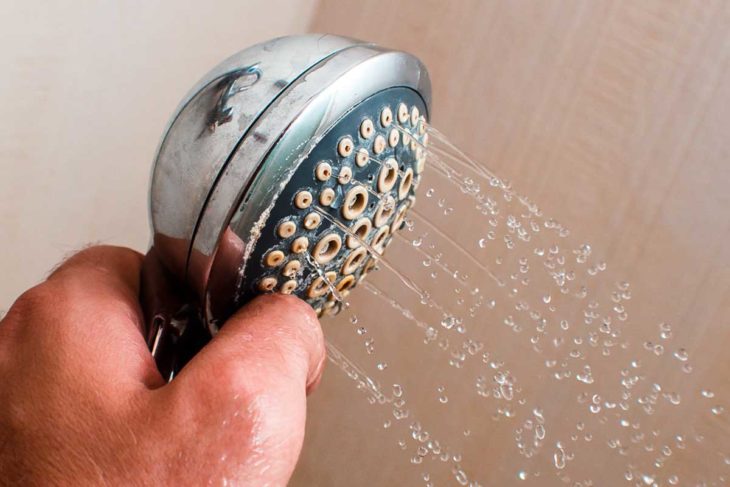
Source: White Water
Hard water is defined as highly alkaline water that has high levels of minerals such as calcium and magnesium. As water flows through the ground, it absorbs these minerals when it comes into contact with limestone, sand, and soil. As a result, water hardness can vary across different states, depending on soil and rock types in certain regions. On the other hand, water without excessive mineral content is referred to as soft water.
While hard water does not cause an immediate health risk, it can wreak havoc in your home. Stains on dishes, the poor performance of boilers & electric kettles, dingy clothes, clogged showerheads, and high electric bills are a few problems that homeowners living in hard water areas face.
How Hard Water Affects Your Skin?
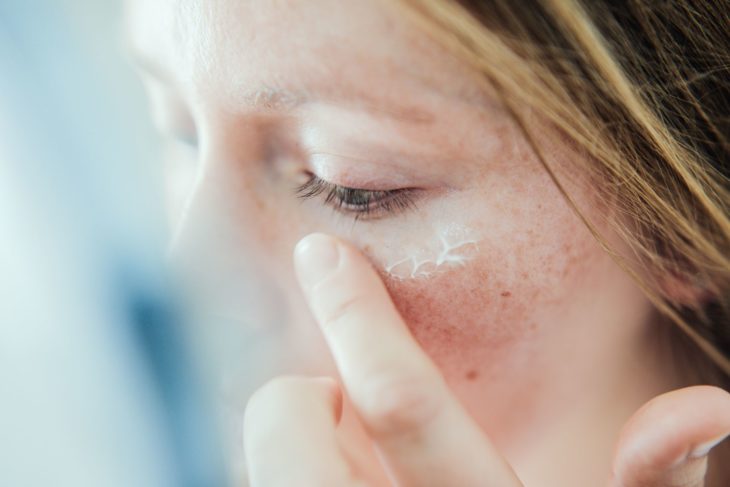
Source: prevention
Of course, the downsides of hard water aren’t limited just to your home, it can lead to many skin conditions such as dermatitis, acne, and eczema. The high mineral content present in hard water reduces the solubility of soaps leaving a build-up of soap residue. The calcium settles on the skin and changes its oil chemistry, which compromises the skin’s ability to moisturize itself. The mineral build-up could clog skin pores, through which the body releases its natural oils. This is a serious issue as clogged pores can lead to acne.
Calcium and Magnesium present in hard water can form free radicals, which are known to break down collagen (which keeps the skin firm). Consequently, the skin sags and wrinkles are formed. In most cases, it also leads to premature aging.
The biggest concern for those showering in hard water is eczema. The symptoms of eczema include inflamed, flaky, itchy, and dry skin often accompanied by a skin infection. Recent research by the University of Sheffield and King’s College London have discovered that exposing skin too hard water damages the skin barrier and increases the sensitivity of skin towards potential irritants. The pH of the skin is normally acidic but the high alkalinity of hard water can raise its pH. This shift in pH leaves skin prone to pathogens which may cause infection. The study also reveals the mechanism by which calcium and magnesium ions in hard water, surfactants, and filaggrin interact to damage the skin barrier unlocking new information about how exposure to hard water could potentially contribute to the development of eczema.
Another research aimed at mitigating the negative effects of hard water found that an ion-exchange water softener reduces the harmful effects of surfactants, potentially minimizing the risk of developing eczema.
How to Test Your Water for Hardness?
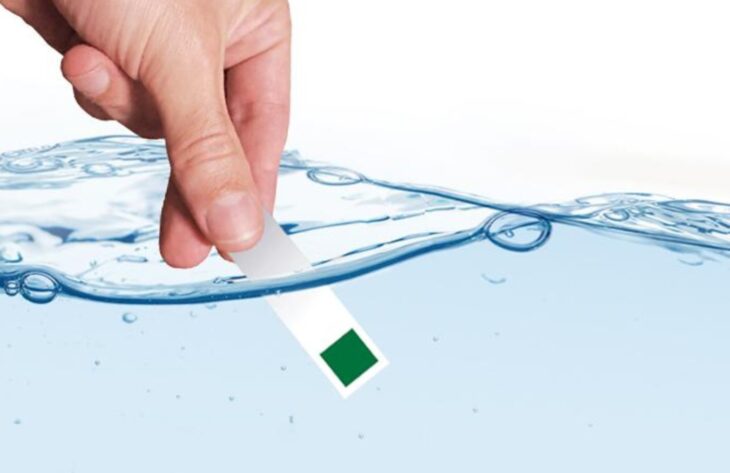
Source: Brita
Without having to go too far out of way, one of the easiest ways to check hardness in water is using a clear empty bottle and liquid soap. Simply fill in the bottle and add a few drops of liquid soap. Close the bottle and shake it vigorously. If there is a lack of bubbles and water appears to be cloudy, you have hard water. On the other hand, soft water would have copious bubbles and the water at the bottom would be clear. While this basic assessment works for many, a more sophisticated test using hard water kits should be done. If you are on private well supply, your water may have other contaminants and it is best to get a comprehensive water test done from an accredited laboratory.
How to Protect Your Skin from Hard Water
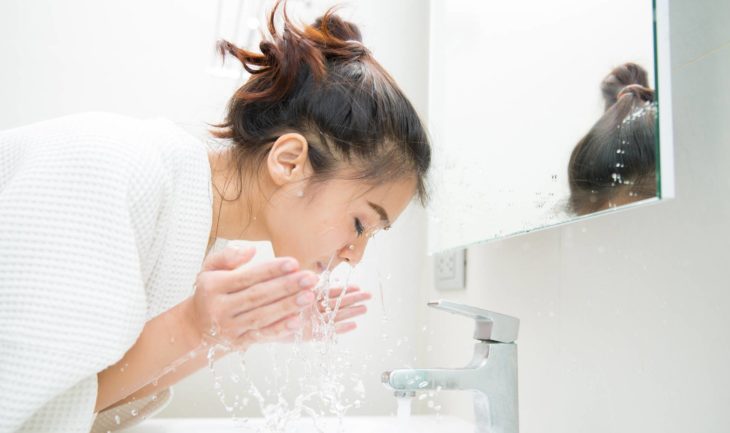
Source: skincare
To prevent the impact of hard water on your skin, it might be worth looking into getting a water softening system installed. These filtration systems come in a variety of sizes and types. The most common ones use ion-exchange process to swap hardness causing minerals with sodium. Brands like Celtic Water Solutions offer a range of water softeners that can supply soft water for your whole house.
If you’re not in a position to get a water softener for your house, you may consider a water softening shower head that can filter out hardness causing minerals. While it may not be as effective as a water softener, it does a pretty good job if you live in an area with a low to moderate level of hardness.
Skin experts recommend using a gentle cleanser instead of a soap, to wash the skin. Using slightly acidic cleansers that match skin’s natural pH levels is important to achieve healthy skin. When shopping for skin products for hard water, you may want to make sure you’re buying products with chelating agents.
Those with highly sensitive skin and other skin conditions need to take special care to ensure that their skin stays well hydrated after cleaning. Applying a generous amount of moisturizing cream helps seal the moisture and rebuilds the skin barrier to protect it from damage.
While skin needs moisture to thrive, it also needs nutrients to retain softness and overall health. Vitamin C products are packed with antioxidants that are known to provide that glowing effect. It naturally improves skin appearance by fighting signs of aging, hyperpigmentation, and dark patches.
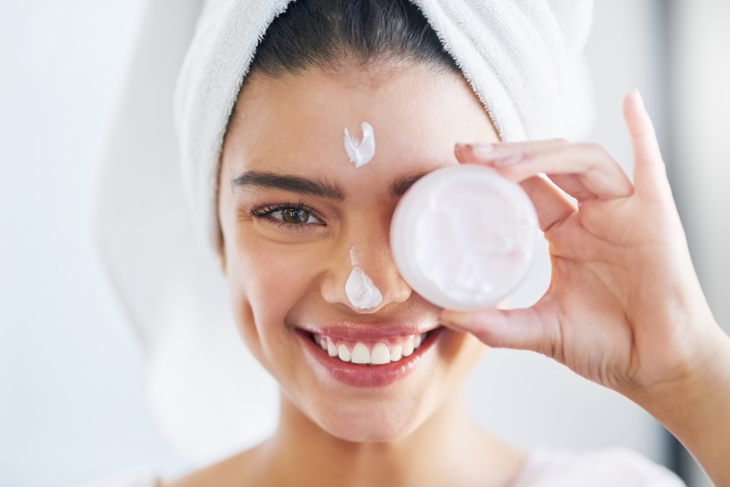
Source: goodhousekeeping
Wrapping Up
While hard water does not cause any scary dangers to your overall health, but it does affect your skin and hair. If you have sensitive skin, you might want to take a step and get your water tested.
No matter what kind of water do you use, make sure to treat your skin and give it the attention it deserves.
